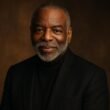Who is Jake Lang?
Edward Jacob Lang, more commonly known as Jake Lang, has emerged as a prominent and polarizing figure in American politics. A participant in the January 6 Capitol riot, Lang has transitioned from a federal defendant to a pardoned activist, and now, a candidate for the United States Senate in Florida. His journey from a jail cell to the campaign trail encapsulates a unique and controversial chapter in the nation’s recent history.
Lang’s story is one of personal turmoil, political radicalization, and unwavering conviction. To his supporters, he is a patriot who stood up against a stolen election and a symbol of resilience. To his detractors, he is a dangerous extremist who participated in a violent insurrection. This article explores the man behind the headlines, from his tumultuous youth to his ambitious political aspirations.
Early Life and Tumultuous Youth
Roots in Upstate New York
Jake Lang grew up in the small town of Narrowsburg, New York, in Sullivan County. His father, Ned Lang, is a local businessman and former town board member. Lang’s parents divorced when he was eight years old, and he had a strained relationship with his father, particularly in his teenage years.
At sixteen, Lang moved to Matamoras, Pennsylvania, and attended Delaware Valley High School. He briefly attended Hunter College in New York City on a wrestling scholarship but dropped out during his first year. This marked the beginning of a difficult and chaotic period in his life.
A “Self-Destructive” Path
Lang has described his late teens and early twenties as being in “dire straits.” He sold hats on the street, engaged in e-commerce, and eventually became a club promoter in New York City. He has spoken openly about a lifestyle of partying, drinking, and drug use, calling himself a “slave of sin.”
This period was marked by what he describes as a “sexual addiction” and a self-destructive phase. He has admitted to being “angry and abusive” when he didn’t get his way. This tumultuous period of his life stands in stark contrast to the political and religious fervor that would later define his public persona.
The January 6 Capitol Riot and Its Aftermath
Actions on January 6
On January 6, 2021, Jake Lang was among the crowd of Donald Trump supporters who marched on the U.S. Capitol. According to allegations from the Justice Department and video evidence, Lang was not a passive observer. He was accused of being at the forefront of the violence, clashing with police officers at one of the Capitol’s entrances.
Footage reportedly shows Lang wearing a gas mask and wielding a police shield and a baseball bat, which he used to strike at officers. He was also heard yelling, “This is our house. We paid for this fucking building.” In the aftermath, he seemed to show no remorse, posting on social media, “arrest me.”
Imprisonment and “Political Prisoner” Status
Lang was arrested and spent four years in a Washington D.C. jail, a facility he and others have referred to as the “DC gulag.” Throughout his incarceration, he maintained his innocence and portrayed himself as a “political prisoner” who was being persecuted for his political beliefs.
He never stood trial for the charges against him, as his case saw continual delays. Lang and his supporters argued that he was a victim of a politically motivated justice system, a narrative that would become central to his public identity.
Activism from a Jail Cell
Organizing a Militia
While incarcerated, Jake Lang did not remain silent. He became a vocal activist from behind bars, using encrypted messaging channels to organize a nationwide network of armed militias. This group, initially called the North American Patriot and Liberty Militia (NAPALM), was established in all 50 states.
Lang’s efforts were focused on preparing for potential “civil unrest,” particularly around elections. He positioned his militia as a force ready to activate at a moment’s notice, a move that drew significant attention and concern from law enforcement and extremism researchers.
Building a Community
Beyond his militia organizing, Lang also became a central figure in the “J6 community.” He created online fundraisers that collected hundreds of thousands of dollars for other January 6 defendants and their families. He frequently appeared in media interviews from jail, using his platform to amplify his message and the cause of those he called “political prisoners.”
Through these efforts, Lang cultivated a following and established himself as a leader among the January 6 defendants. His activism from prison was a key part of his transformation from an individual defendant into a symbol of the broader movement.
A Presidential Pardon and a New Beginning
Jake Lang’s time in prison came to an end not through a trial, but through a presidential pardon. When Donald Trump returned to office, he issued pardons for approximately 1,600 individuals involved in the January 6 riot, and Lang was among them. His release on January 20, 2025, was a moment he described as “like a Biblical miracle.”
For Lang and his supporters, the pardon was a vindication. It reinforced their narrative that the January 6 defendants were patriots who had been unjustly punished. His release marked a new chapter in his life, one that would see him transition from a prison activist to a political candidate.
The Florida Senate Campaign
A “MAGA Agenda” for Florida
Upon his release, Jake Lang quickly turned his attention to politics. He announced his candidacy for the U.S. Senate in Florida, seeking the seat vacated by Marco Rubio. Running on a platform he calls a “100% TRUMP AMERICA AGENDA,” Lang has embraced the most fervent elements of the MAGA movement.
His policy priorities include mass deportations, sealing the border, and large tax cuts. He has positioned himself as an outsider candidate, similar to Donald Trump, and has been critical of what he calls the “establishment” and “RINOs” (Republicans in Name Only). He chose to run in Florida, a state he calls “the most Maga state in the country,” believing he would find a receptive audience for his message.
An Uphill Battle
Despite his passionate base of support, Lang faces a challenging path to victory. He is running in a special election scheduled for November 2026, and he will first have to win a Republican primary against the incumbent, Senator Ashley Moody. Some Florida Republicans have dismissed him as not being a serious contender.
However, Lang remains undeterred. He believes that the same divine intervention that he credits for his release from prison will guide him in his political campaign. He sees his candidacy as a continuation of the fight that began on January 6, a chance to take over the Capitol, this time from the inside.
What’s Next for Jake Lang?
Jake Lang’s journey is far from over. His Senate campaign will test the limits of his appeal and the political power of the J6 community. Whether he succeeds in his political ambitions or not, he has already carved out a unique and controversial space for himself in the American political landscape.
His story is a reflection of the deep divisions within the country and the ongoing battle over the narrative of January 6. As he continues to advocate for his vision of America, Jake Lang will undoubtedly remain a figure to watch, a symbol of a movement that continues to challenge the norms of American politics.









